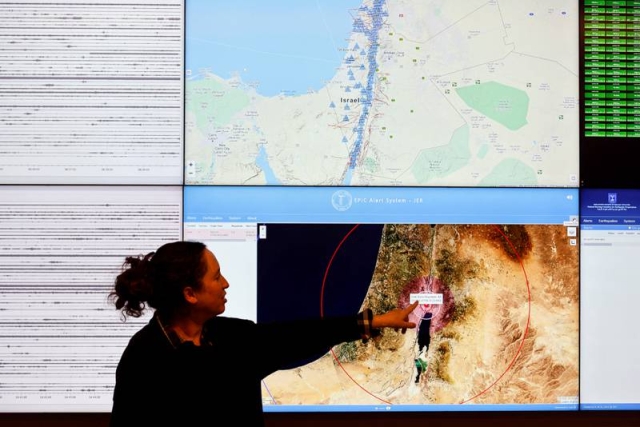In the wake of the devastating earthquake that struck Morocco, Israel's cutting-edge earthquake detection technology, known as "Terua," has gained significant attention and recognition. This remarkable system, developed through a collaboration between Motorola Solutions and the Canadian company Nanomatrix for the Israel Geological Survey, has proven its worth in earthquake monitoring and early warning. Haim Shulman, the project manager representing Motorola Solutions, shared insights about the system with reporters from the Israeli news outlet "Maariv."
Originally conceived as a research tool, Terua serves a dual purpose. Shulman explained, "The initial purpose of the system was precisely from the research aspect - to enable learning about earthquakes and to make it a sort of 'pilgrimage center' for many researchers from around the world." This underscores Israel's commitment to advancing earthquake science and knowledge-sharing on a global scale.
Remarkably, Terua operates in just three countries worldwide: Israel, the United States, and Japan. Its multifaceted activity encompasses continuous earthquake monitoring, real-time data collection, and seismic analysis. Shulman highlighted its contributions, stating, "The first aspect of its activity is actually the monitoring of earthquakes 24 hours a day, seven days a week, with the system itself also picking up other earthquakes that occur in our region, and making it possible to study them and later create and refine models of earthquakes. The system has helped a lot in the research aspect."
Foreign Ministry representatives are on the ground in Morocco to help Israelis who want to return to Israel in the aftermath of a deadly earthquake.
— Israel Foreign Ministry (@IsraelMFA) September 11, 2023
Representatives in Marakkesh who are working alongside our embassy staff met with Israelis, toured the local synagogue and heard… pic.twitter.com/oQ6njqY0HV
Beyond research, Terua excels in earthquake detection and warning. Shulman proudly noted, "Another aspect is actually detection and warning against the earthquakes before they actually occur. In recent years, the system has not missed a single earthquake." This extraordinary level of accuracy has made it an invaluable asset for safeguarding lives and property.
The system's capabilities extend to covering over a hundred designated hotspots across the country, where specialized sensors have been strategically placed to monitor seismic activity continuously. However, the most critical facet of Terua's operation is its ability to provide advance warnings through a sophisticated algorithm developed in the United States. The most important aspect of the system's activity is the fact that, with the help of an algorithm developed in the United States, it can give advance warning so that people can be informed and allowed to take shelter. In Israel, it is connected to a system that distributes the messages to all citizens, similar to red alarm alerts."
The Chords Bridge in Jerusalem, #Israel lights up in the colors of the Moroccan flag in solidarity with the people of #Morocco following the devastating earthquake that killed over 2000 and injured countless others. The people of Israel stand with Morocco 🇲🇦 🇮🇱
— StandWithUs (@StandWithUs) September 10, 2023
Photo : Yoav… pic.twitter.com/dNQyGDmRRt
Summing up the system's impressive track record, Shulman concluded, "It is very complex because we also have to protect them from the various weather conditions and also make sure that they are far enough from roads and anything else that can make 'noise' and affect their daily activities in some way. In recent years, the system has not missed a single earthquake." This success underscores Terua's vital role in safeguarding Israeli lives and property while advancing earthquake research globally.


